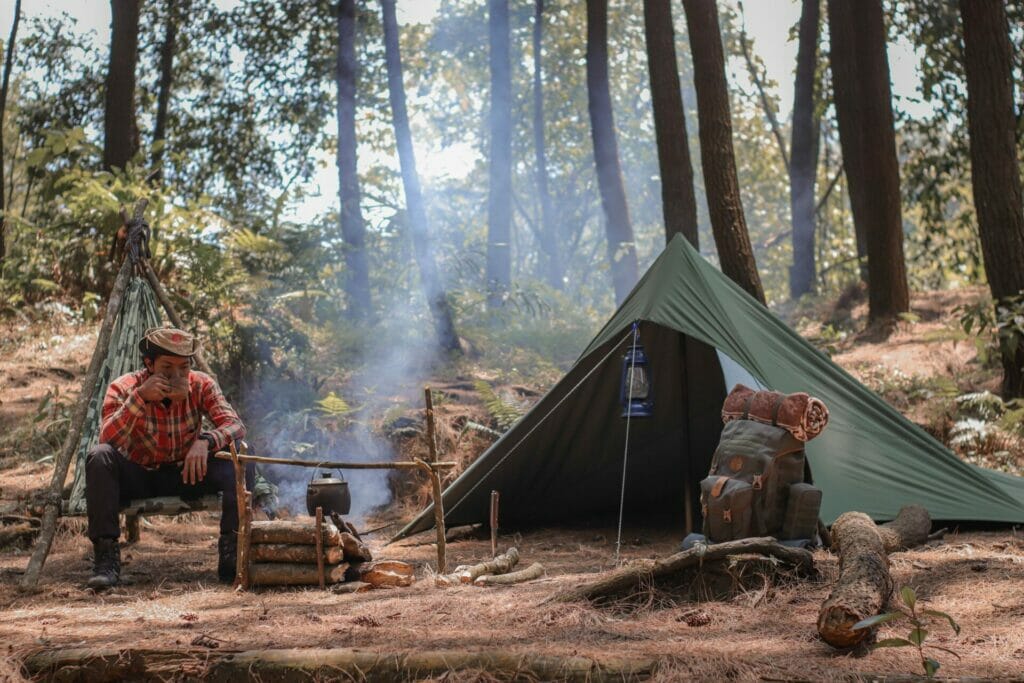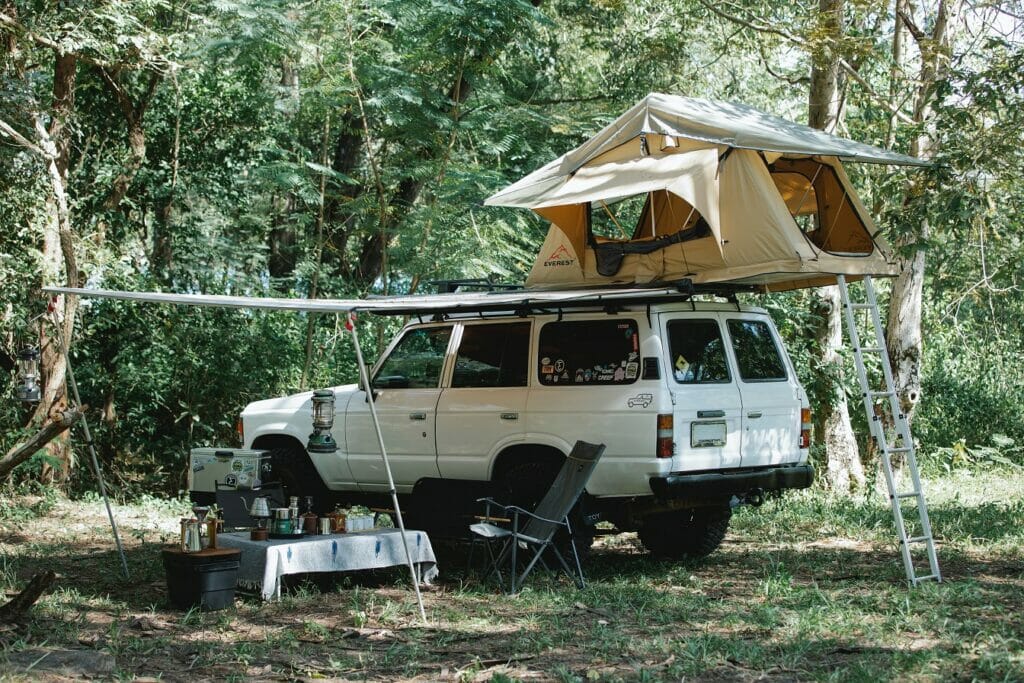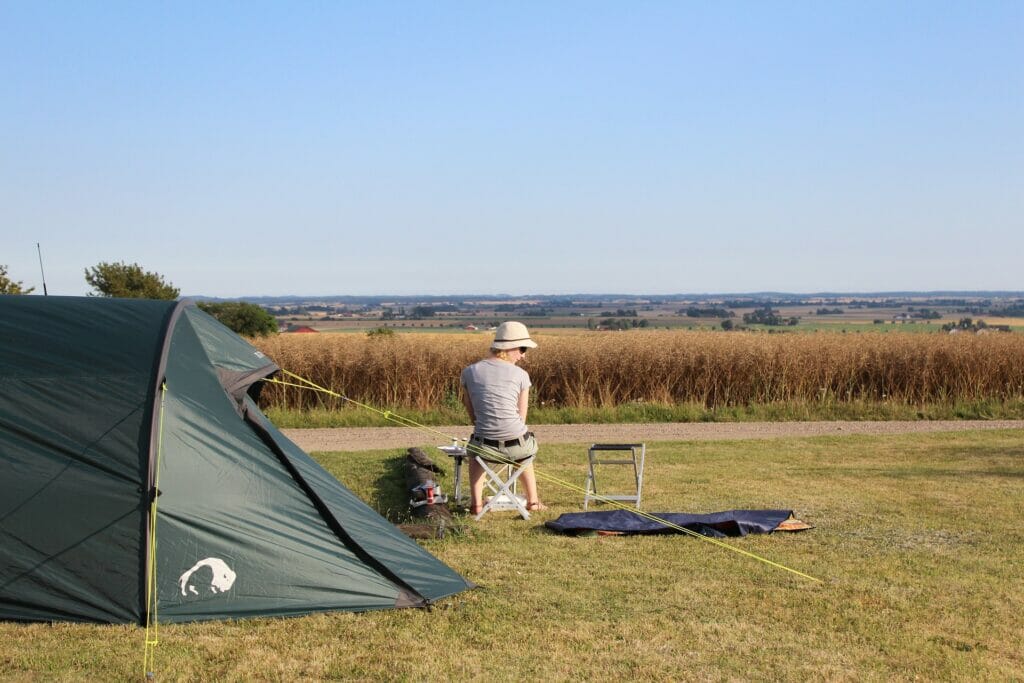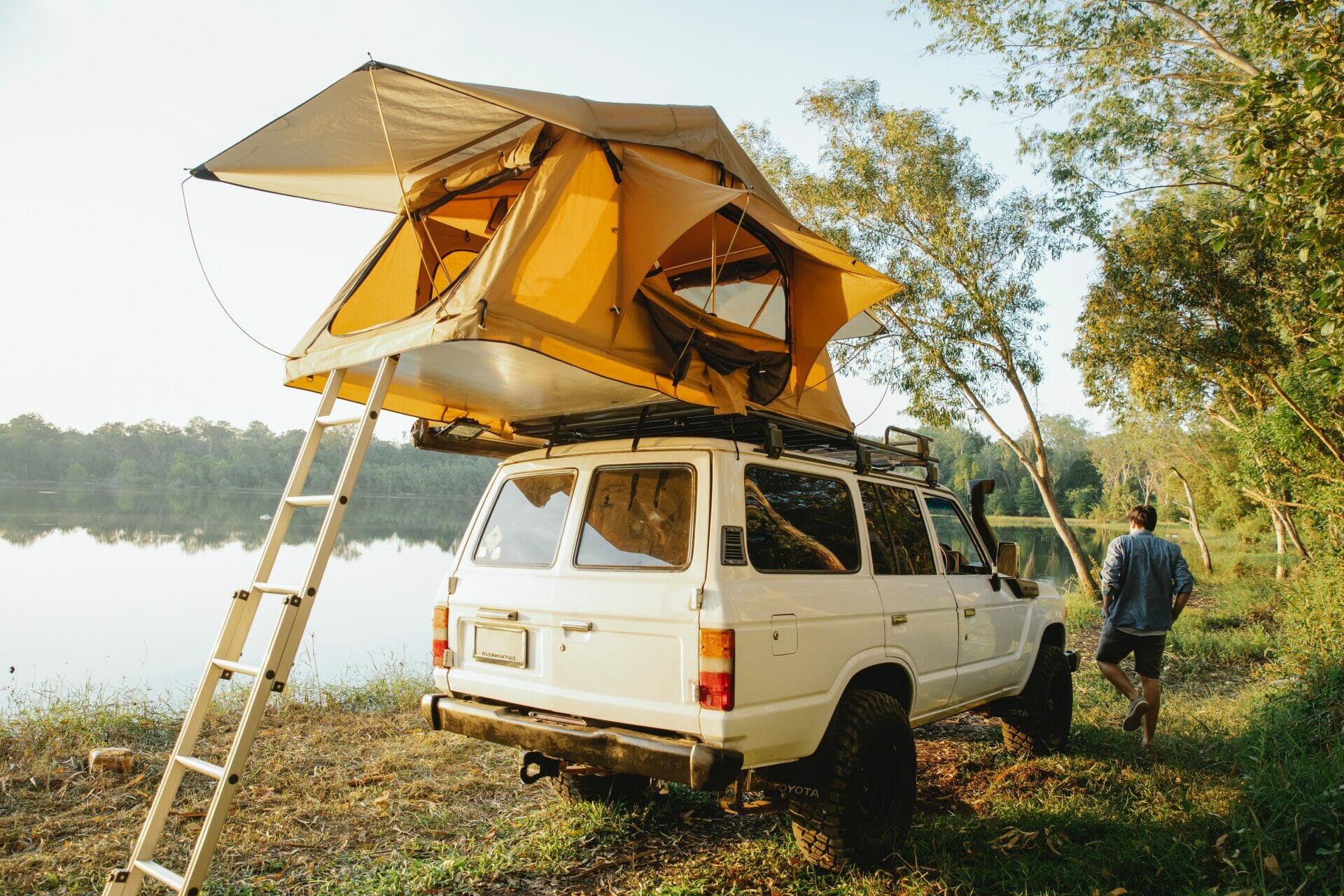Last Updated on May 11, 2023 by Mosabbir
Ah, wild camping. There’s nothing quite like pitching your tent in the middle of nowhere, surrounded by nothing but the sounds of nature. But what do you need for wild camping?
If you’re new to wild camping, though, it’s important to be prepared. Here is everything you’ll need to know in order to make your wild camping experience as safe and enjoyable as possible.
The Benefits Of Wild Camping
While it might sound a bit daunting at first, wild camping can be an incredibly rewarding experience. Here are just a few of the benefits that come with spending a night under the stars.

It Gets You Away From The Hustle Of Everyday Life.
In today’s world, it’s easy to get caught up in the rat race and forget to appreciate the simple things in life. When you go wild camping, all of that disappears.
You’re disconnected from technology and the outside world, and you’re able to focus on being in the moment. For many people, wild camping is a way to reset and recharge away from the stress of daily life.
It lets You Appreciate Nature In Its Purest Form.
One of the best things about wild camping is that it allows you to immerse yourself in nature without all the distractions that come with developed campsites.
When you’re out in the wilderness, you’re able to truly appreciate all that Mother Nature has to offer; from the tallest trees to the smallest insects, there’s so much to see and learn about when you’re living off the land even just one night.
It Forces You To Simplify Your Life.
In today’s society, we have access to material possessions and creature comforts that our ancestors could never have even dreamed of. But sometimes, all that stuff can be more of a burden than a blessing.
When you go wild camping, you’re forced to pare down your belongings to only what’s absolutely essential; and as a result, you might find that your life is simpler and happier without all the extra “stuff.”
It Gives You A Sense Of Accomplishment.
Breaking out of your comfort zone can be scary but it’s also incredibly rewarding.
Wild camping pushes you outside of your comfort zone by forcing you to deal with obstacles like finding potable water and building a shelter but once you’ve overcome those challenges, you’ll have a sense of accomplishment that comes from knowing you’ve survived and thrived in some of the most inhospitable conditions nature has to offer.
It Allows You To Connect With Others—Or Yourself.
One of the best things about wild camping is that it can be done solo or with others; it’s really up to you.
If you choose to go it alone, it can be a great opportunity for introspection and reflection; but if you choose to go with others, it can be an opportunity to bond over shared experiences in beautiful surroundings. Either way, wild camping provides an opportunity for connection with others or with yourself that might not otherwise be possible.
Read more: How To Dry Wet Clothes When Camping
The 10 Essentials for Wild Camping

1. A Tent
Perhaps the most obvious item on this list is a tent. When wild camping, you’ll want a tent that’s lightweight and easy to carry, yet sturdy enough to withstand bad weather.
Look for a tent with a waterproof rating of at least 3000mm anything less than that and you risk waking up to a soggy sleeping bag.
Learn More: How to Choose The Right Solar Panel for Your Caravan
2. Sleeping Bag
Speaking of sleeping bags, you’ll need a good one if you want to get a good night’s sleep while wild camping. Again, look for something that’s both lightweight and waterproof.
Down-filled sleeping bags are typically the best choice for weight and warmth, but they can be more expensive than synthetic sleeping bags.
3. Sleeping Pad
A sleeping pad is optional but highly recommended. Not only will it make your sleeping bag more comfortable, but it will also insulate you from the cold ground.
Again, go for something lightweight and easy to carry.
4. Camping Stove
If you want to be able to cook hot meals while wild camping, you’ll need a camping stove.
There are many different types available on the market, so do your research before purchasing one to find the best option for your needs.
5. Fuel
Don’t forget to pack fuel for your stove! One 250g canister will typically be enough to cook three meals per day for one person.
6. Cookware
You’ll need something to cook your meals in, of course. A lightweight pot or pan should suffice—just make sure it’s stable enough to use on your stove.
7. Eating Utensils
Knives, forks, and spoons are essential for any meal, whether you’re cooking in the backcountry or sitting down at a five-star restaurant.
If weight is an issue, consider packing just one utensil (a spoon or fork) and using it for both cooking and eating.
8. Water Bottle Or Hydration Reservoir
Most people need about two litres of water per day when hiking; more if it’s hot out or if you’re exerting yourself more than usual. Bring along a water bottle or hydration reservoir so you can stay hydrated throughout the day and don’t forget to pack extra water in case of emergencies!
9. Water Filter Or Purifier
If you’re unsure about the quality of the water where you’ll be wild camping, bring along a water filter or purifier to ensure that your drinking water is safe.
10. First-Aid Kit
You never know when someone might get hurt while hiking or climbing or even just trip and fall while walking around camp so it’s always best to be prepared with a first-aid kit.
At a minimum, your kit should include bandages, gauze, antiseptic wipes, pain relievers, and Tweezers.

In addition to the basics like a tent, sleeping bag, and food, there are some other things you should consider bringing along on your trip. If you’re going to be camping in an area with no cell reception, it’s a good idea to bring a satellite phone or walkie-talkie in case of an emergency.
A flashlight or headlamp is also essential for light at night. And last but not least, don’t forget the insect repellent! Nothing ruins a camping trip quite like being eaten alive by mosquitoes.
Learn more: Solar Panels vs Solar Blankets- Which is Better For Camping?
Conclusion
These are just a few things you should consider bringing on your next wild camping trip! We hope this post answered everything about what do you need for wild camping.
By being prepared and bringing along the essentials, you can ensure that your experience is both safe and enjoyable.
Do you have any other items that you would add to this list? Let us know in the comments below!
